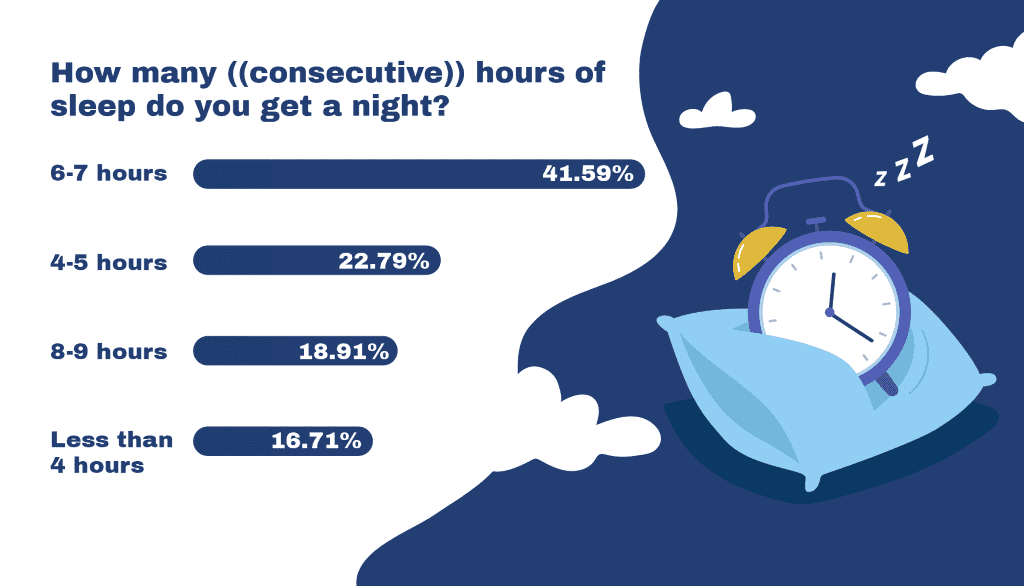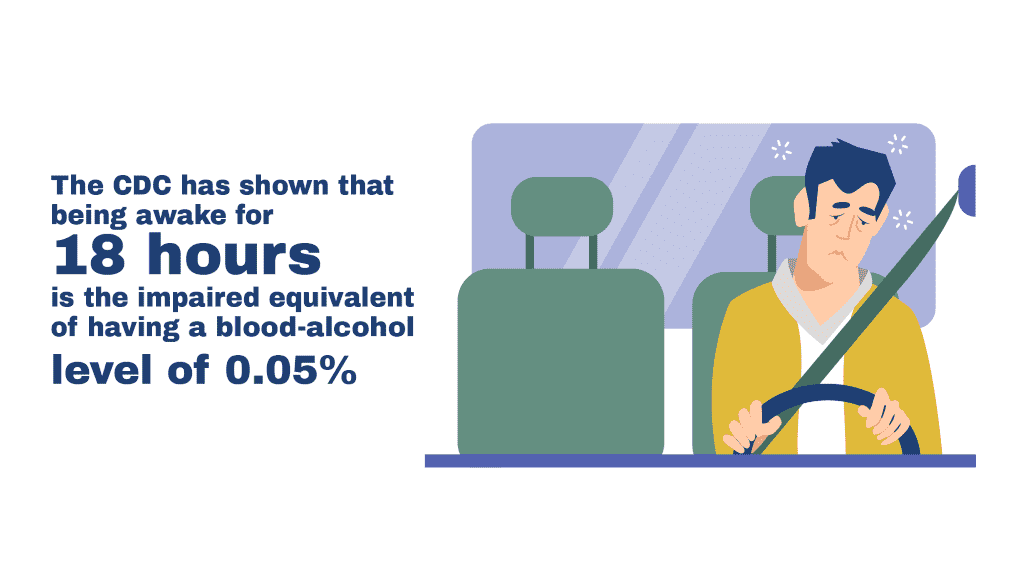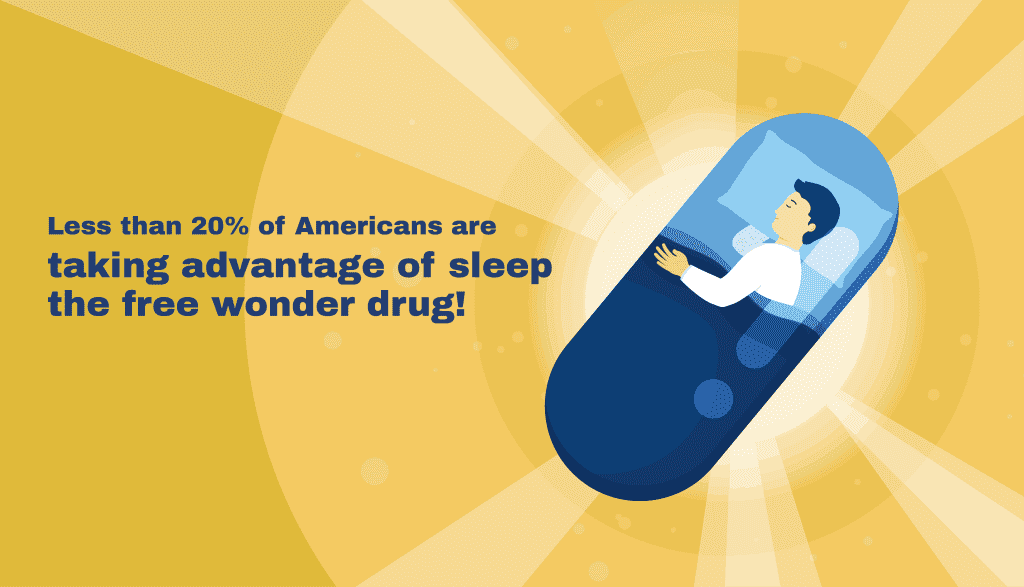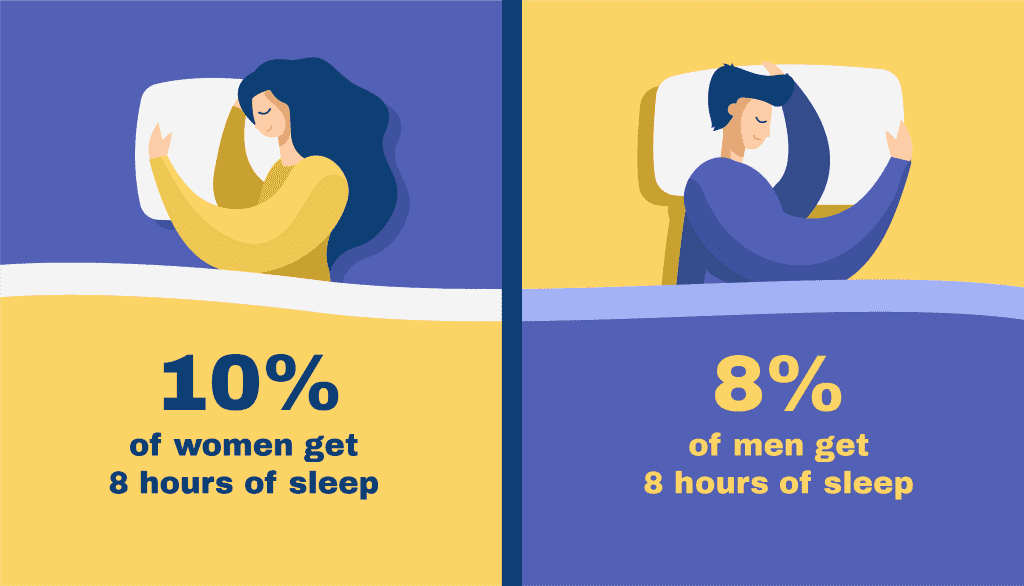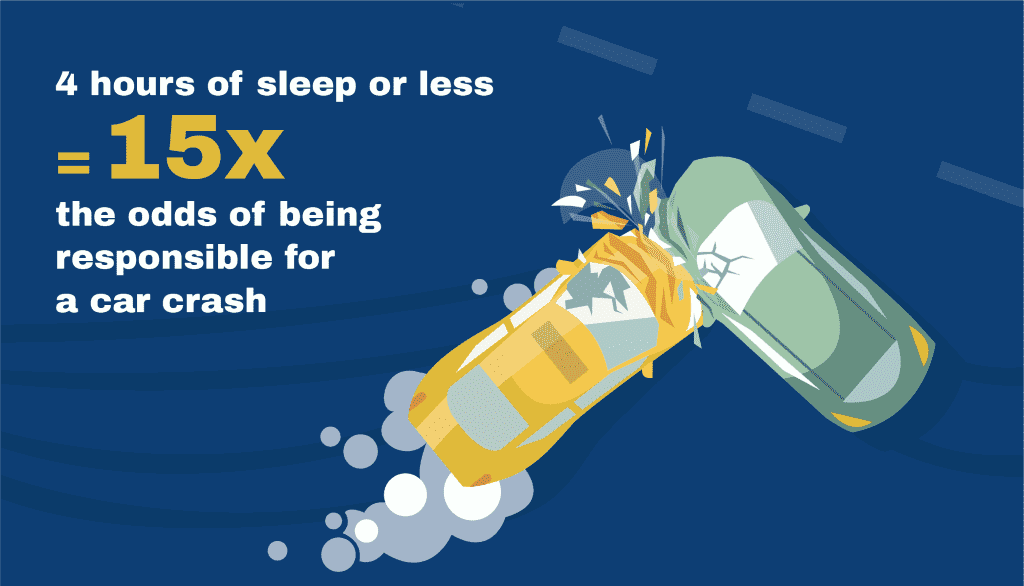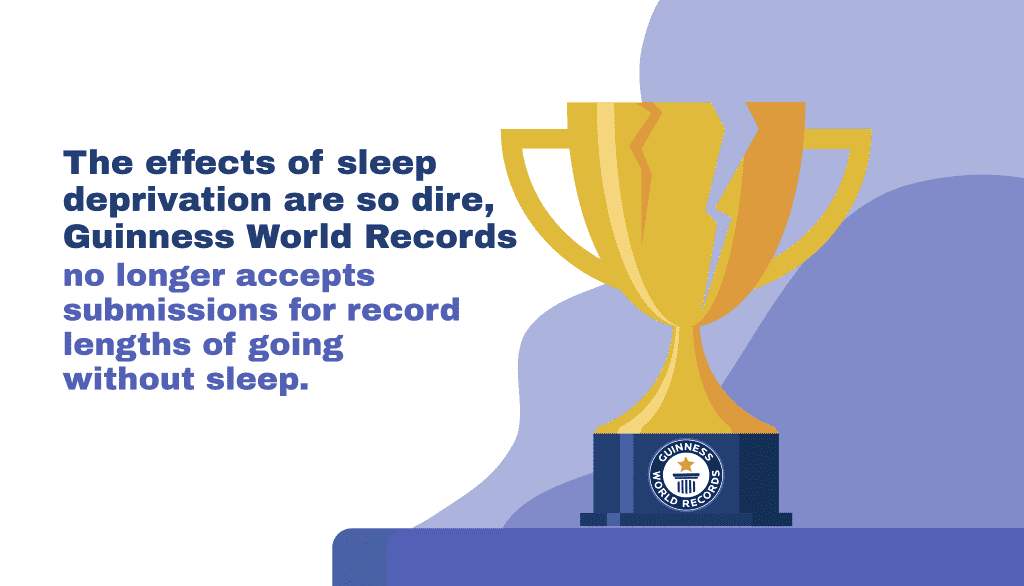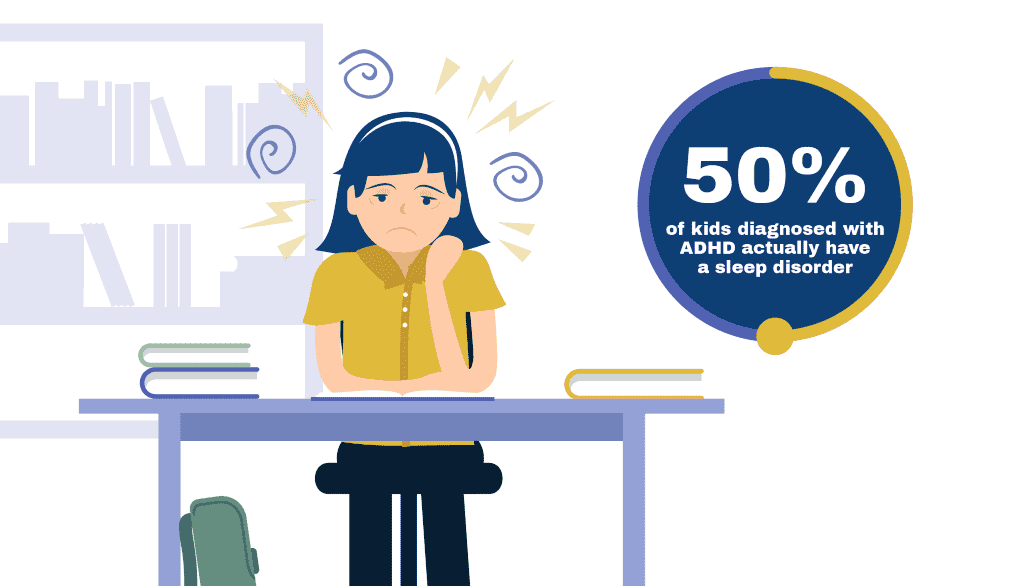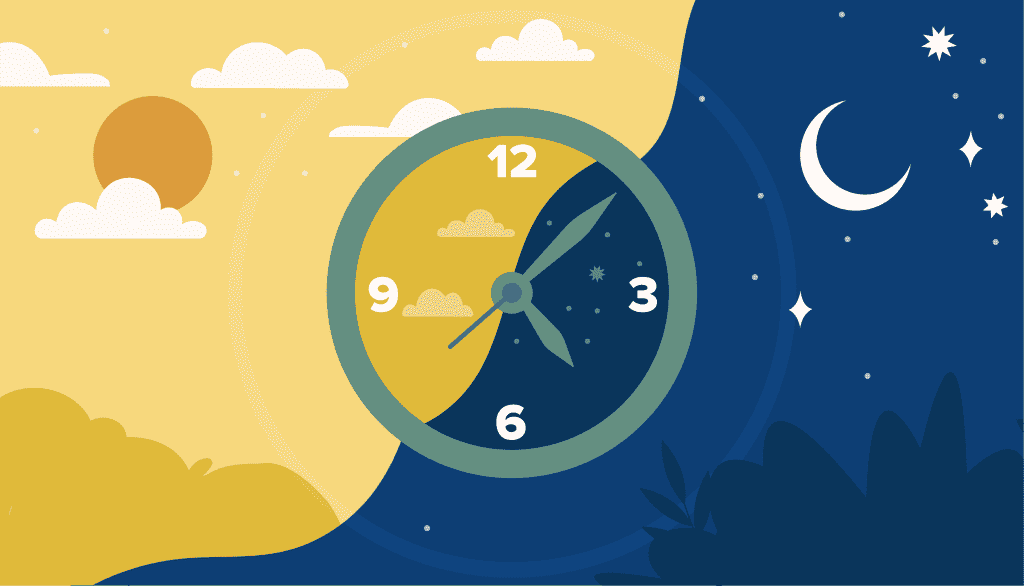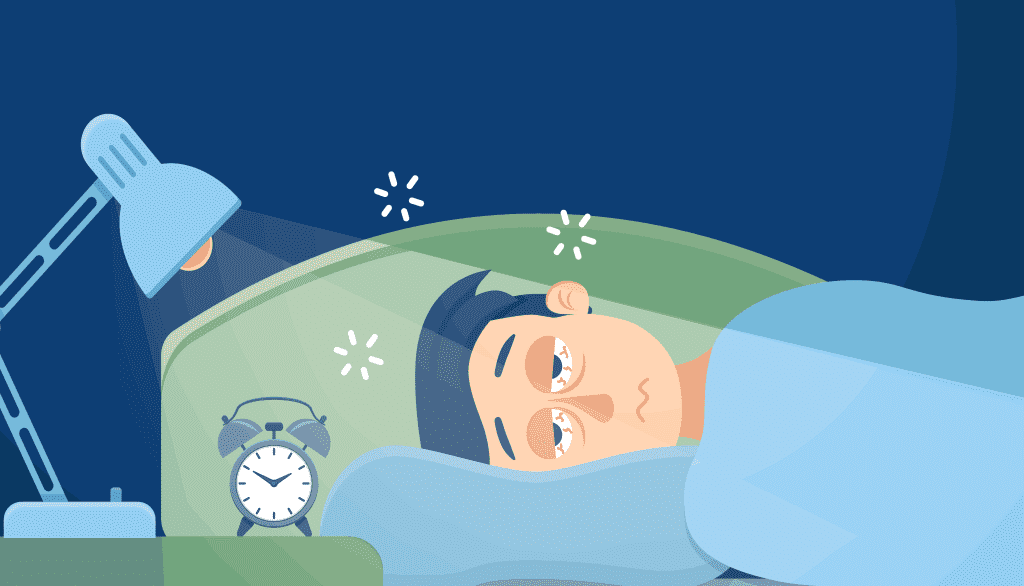
Sleep Deprivation Is Killing Us – What Can We Do About It
Sleep deprivation. It’s a rite of passage … right?
It starts in school, studying into the early morning hours, desperately trying to stay awake in class. Getting up before the sun after a sleepless night, worried about everything that needs to get done.
Most discover the magic of caffeine early on and enter the workforce comparing how many cups it takes to function each day. Or how few hours you “need” before you get up to do it all again.
For a long time, the less you needed was somehow tied to your productivity. It made you more hardcore. We surveyed Americans to see if that mentality has shifted.
A survey done by Duffy & Duffy, PLLC asked Americans just how much sleep they were getting a night. (Google Survey, December 2021)
More than 1/3 of Americans get less than five hours of sleep a night.
Of those, over 17% are getting less than four! That means that a large percentage of the population is walking around having been awake more than 18 hours.
Research from the CDC has shown that being awake for 18 hours is the impaired equivalent to having a blood-alcohol level of 0.05%. If, for some reason, you find yourself awake for 24 hours or more, you’re now looking at a blood alcohol level of 0.10%. That surpasses the legal, federal limit to be driving.
17% of people driving on your morning commute have had less than 4 hours of sleep
Many of us have worked in jobs where it felt like sleep deprivation was one of the requirements but rarely, if ever, did getting drunk make the job description.
If someone were to announce a new drug that would decrease your chance of contracting almost every known auto-immune disease, lower your risk for cancer, make you more attractive, smarter, healthier, better able to control cravings, and just make you a generally happier person … who wouldn’t jump on that?
Matthew Walker, Sleep Scientist, says,
“Every disease that is killing us in developed nations has causal and significant links to a lack of sleep.”
Experts have proven that 8-9 hours of good quality sleep is the answer we are looking for and yet less than 20% of Americans are taking advantage of this free wonder drug.
Lack of sleep among US workers alone costs the economy almost $411 billion a year. That’s 2.28 percent of the country’s GDP. Sleep deprivation also increases the risk of death by 13 percent and leads to the US losing 1.2 million working days a year.
It looks like even age does not guarantee wisdom in this area. The breakdown for respondents across all age groups, from 25-34 all the way through to those over 65 answered the same way, with the majority getting less than 6 hours of sleep each night.
That means that less than 20% of the population is getting a full 8 hours of sleep.
Of the small few who see the benefit in a full night of sleep, it seems women may be catching on quicker. More than 10% consistently get over 8 hours of sleep whereas only 8% of men are striving for the ideal.
Can Sleep Deprivation Kill You?
Sleep deprivation is one of the few immediately relatable human experiences.
It is also the cause of more car accidents than drugs and alcohol combined. (Walker, Matthew P. Why We Sleep: Unlocking the Power of Sleep and Dreams)
Drowsy driving is dangerous; that’s common knowledge. Science Daily reported on a study that now allows us to quantify the relationship between lack of sleep and being responsible for a car accident.
The research found that those who had 4 hours of sleep or less had 15 times the odds of being responsible for a car crash, compared with those who got a full night’s sleep. It’s about more than being awake. If you are sleep-deprived, you are at a much higher risk of making a mistake, such as miscalculating space or failing to notice signs.
Each year, nearly 100,000 traffic crashes can be attributed to drowsy driving, including more than 1,500 deaths and over 70,000 injuries, according to the U.S. National Highway Traffic Safety Administration.
But can sleep deprivation actually kill you?
After years of study, Walker is pretty clear in his analysis, “Routinely sleeping less than six or seven hours a night demolishes your immune system, more than doubling your risk of cancer … our lack of sleep is a slow form of self-euthanasia.”
He goes on to explain later, in an interview with The Guardian, how closely he monitors both his quantity and quality of sleep, reasoning that,
“Once you know that after just one night of only four or five hours’ sleep, your natural killer cells – the ones that attack the cancer cells that appear in your body every day – drop by 70%, or that a lack of sleep is linked to cancer of the bowel, prostate, and breast, or even just that the World Health Organisation has classed any form of night-time shift work as a probable carcinogen, how could you do anything else? An adult sleeping only 6.75 hours a night would be predicted to live only to their early 60s without medical intervention.”
Your kids aren’t immune, either. They estimate that more than 50% of kids diagnosed with ADHD actually have a sleep disorder and no clue what that means for long-term consequences. (Walker, Matthew P. Why We Sleep: Unlocking the Power of Sleep and Dreams)
We used to believe that sleep was just this period of time that our body and brain goes dormant, so it makes sense that our industrialized societies have lost respect for sleep. However, as explained by Johns Hopkins Medicine, we know now that our brains are actually busy with a multitude of different functions—things that not only improve our quality of life, but could actually save it.
So, we know sleep deprivation isn’t something to be proud of, we know it’s detrimental to our health and quality of life, and we know that our lack of sleep can have a deadly effect on the people around us.
So, what do we do about it?
Getting Better Sleep
When considering what changes will have the biggest impact on your sleep quantity and quality, there are a couple of things to keep in mind.
Your circadian rhythm is controlled by your brain and one key function of this biological clock is to create melatonin at night and turn off the creation of that particular hormone when exposed to light.
Sleep drive is also important. Your body gives off cues when it needs basic things like sleep, food, and water.
Hopkins Medicine explains that throughout the day, your desire for sleep builds until it reaches a level that you just need to sleep. This is where a major difference can be found between sleep and hunger. Your body can’t force you to eat, but it can force you to sleep, whether you’re in a meeting or behind the wheel of a car. It’s called microsleep and can take place in episodes of only a few seconds. But napping for more than 30 minutes can also really throw this off, depleting your sleep drive, making it impossible to fall asleep later in the evening.
And then there is society’s favorite drug: caffeine, with its quarter-life existence. Meaning that if you drink a cup of coffee at noon, by midnight a quarter of that caffeine is still running through your brain. It can take between 24-36 hours to fully leave your system.
It’s also found in more than just our beloved coffee and tea. You can find it in chocolate, ice cream, cereal, kombucha, granola bars, soft drinks, and pain relievers.
With that in mind, check out the tips below to see how you can make sure you are getting the kind of sleep your body needs and you deserve!
Created by New York medical malpractice lawyers Duffy & Duffy, PLLC
• View
larger version
